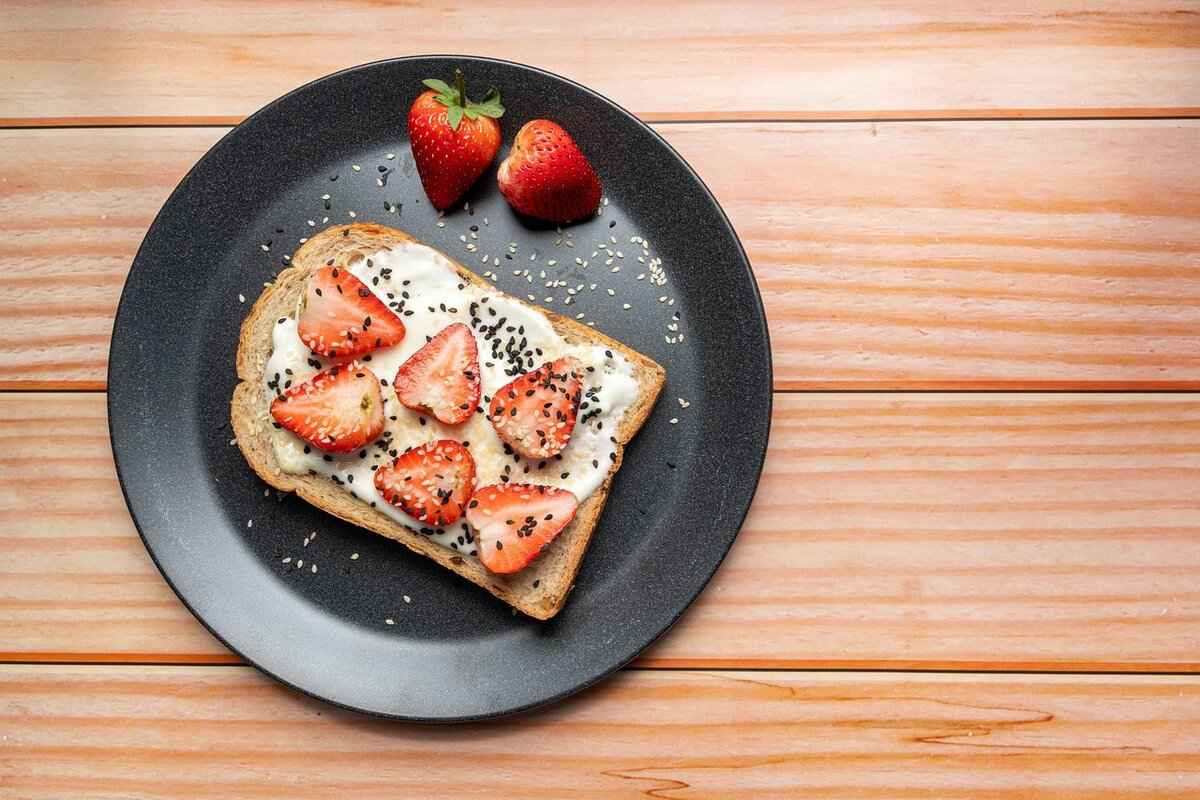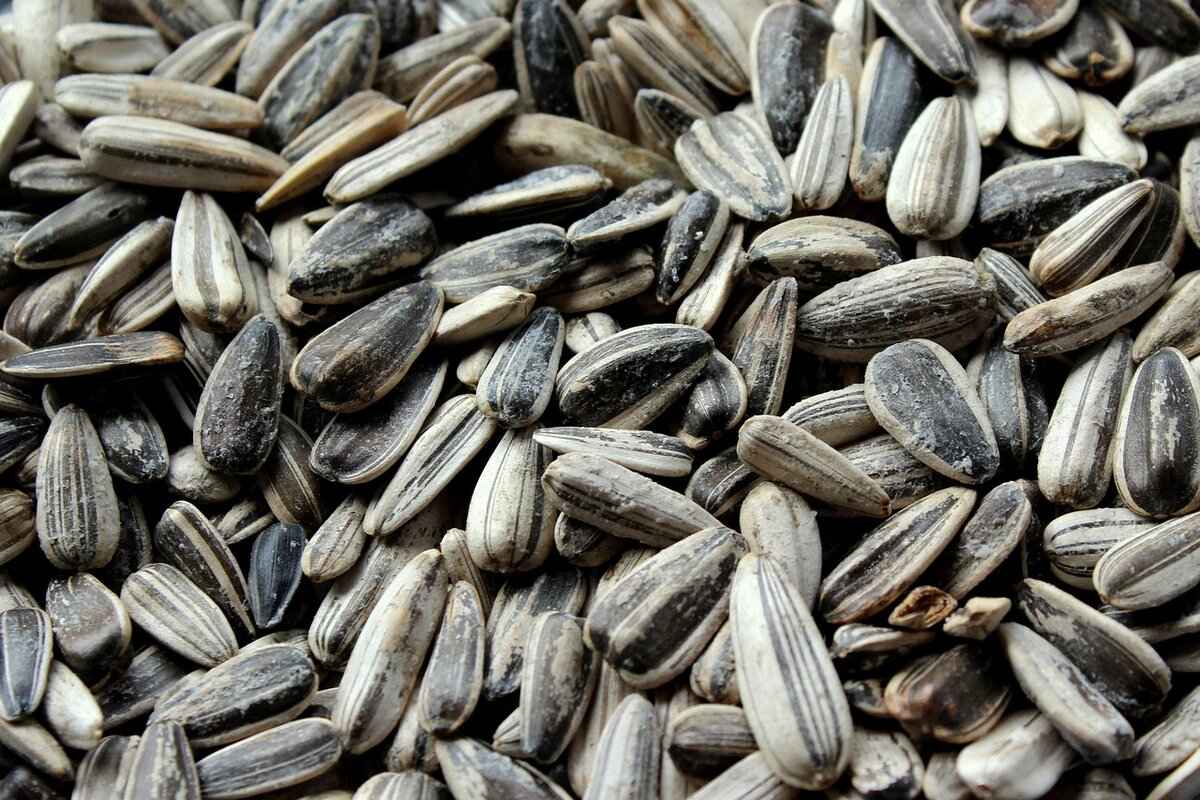Chia seeds, often hailed as a superfood, have gained immense popularity in recent years due to their numerous health benefits and impressive nutritional profile. This article delves into the various advantages of incorporating chia seeds into your diet, while also addressing potential drawbacks and considerations for certain individuals.
Chia seeds are small, black seeds derived from the Salvia hispanica plant, which is native to Mexico and Guatemala. These seeds have been a staple in ancient diets and are now recognized for their remarkable nutrient density.
Chia seeds are packed with essential nutrients, making them a valuable addition to any diet. They are particularly rich in:
- Omega-3 Fatty Acids
- Dietary Fiber
- Protein
- Vitamins and Minerals
Chia seeds are one of the best plant-based sources of omega-3 fatty acids, which are known for their role in promoting heart health and cognitive function. These essential fats help reduce inflammation, support brain health, and maintain healthy cholesterol levels.
With a high fiber content, chia seeds are excellent for digestive health. They absorb water and expand in the stomach, which can help promote feelings of fullness and assist in weight management. This gel-like consistency can also aid in maintaining regular bowel movements.
Due to their ability to absorb liquid and form a gel, chia seeds can help control appetite and reduce calorie intake. Incorporating them into meals can enhance satiety, making it easier to manage portion sizes and avoid unnecessary snacking.
Adding chia seeds to your meals is simple and versatile. They can be sprinkled on:
- Smoothies
- Oatmeal
- Baked Goods
Chia seeds have a mild flavor, allowing them to blend seamlessly into various dishes without altering the taste.
While chia seeds are generally safe for most individuals, some may experience digestive issues if consumed in excess. It is essential to introduce them gradually into your diet to avoid bloating or discomfort.
To maintain their freshness and nutritional value, chia seeds should be stored in a cool, dry place, preferably in an airtight container. This helps protect them from exposure to light and moisture, which can degrade their quality over time.
Chia seeds can be a nutritious addition for many individuals, including those following a vegan diet, as they provide a complete protein source. However, individuals with specific health conditions, such as digestive disorders or those on blood thinners, should consult a healthcare professional before adding chia seeds to their diet.
In conclusion, chia seeds are a nutrient-dense superfood that can offer numerous health benefits when incorporated into a balanced diet. However, as with any food, moderation and individual considerations are key to enjoying their advantages while minimizing potential drawbacks.

What Are Chia Seeds?
Chia seeds are small, nutrient-dense seeds derived from the Salvia hispanica plant, which is indigenous to Mexico and Guatemala. These tiny black seeds have gained immense popularity in recent years, often hailed as a superfood due to their remarkable health benefits and nutritional profile. They have been consumed for centuries, dating back to ancient civilizations, where they were valued for their energy-boosting properties.
Chia seeds are not just a trendy health food; they are packed with a variety of essential nutrients that can contribute to overall wellness. They are particularly renowned for their high content of omega-3 fatty acids, fiber, and protein. This unique combination makes them an excellent addition to any diet, whether for weight management, heart health, or general nutrition.
Chia seeds are a powerhouse of nutrients. Here’s a breakdown of their key components:
- Omega-3 Fatty Acids: Chia seeds are one of the richest plant sources of omega-3 fatty acids, which are essential for maintaining heart health and supporting brain function.
- Dietary Fiber: With about 11 grams of fiber per ounce, chia seeds help promote digestive health and can aid in weight loss by increasing feelings of fullness.
- Protein: They provide a good source of protein, containing all nine essential amino acids, making them a valuable resource for vegetarians and vegans.
- Vitamins and Minerals: Chia seeds are also rich in calcium, magnesium, and phosphorus, which are vital for bone health.
The health benefits of chia seeds are numerous. Here are some of the most notable:
- Heart Health: The omega-3 fatty acids found in chia seeds can help reduce inflammation and lower blood pressure, contributing to better cardiovascular health.
- Weight Management: Their high fiber content helps control appetite, making it easier to manage calorie intake.
- Bone Health: With their rich mineral content, chia seeds can support strong bones and reduce the risk of osteoporosis.
Adding chia seeds to your meals is simple and versatile. Here are some practical ways to include them:
- Smoothies: Blend chia seeds into your favorite smoothies for an extra nutrient boost.
- Oatmeal: Stir them into oatmeal or yogurt for added texture and nutrition.
- Baked Goods: Incorporate chia seeds into muffins, pancakes, or bread recipes.
While chia seeds are generally safe for most people, some may experience mild digestive issues, especially if consumed in large quantities. It’s important to start with small amounts and gradually increase your intake to allow your body to adjust.
To maintain their freshness, store chia seeds in an airtight container in a cool, dry place, away from direct sunlight. Properly stored, they can last for up to two years, making them a convenient addition to your pantry.
Chia seeds are a fantastic option for many, including those on vegan diets. However, individuals with certain health conditions or allergies should consult a healthcare provider before adding them to their diet.

What Nutrients Do Chia Seeds Contain?
Chia seeds, often hailed as a superfood, are tiny black seeds derived from the Salvia hispanica plant, which is native to Mexico and Guatemala. These seeds have gained popularity due to their impressive nutritional profile and numerous health benefits. In this section, we will delve deeper into the essential nutrients that make chia seeds a valuable addition to any diet.
Chia seeds are packed with essential nutrients, making them a powerhouse of health benefits. They are particularly rich in:
- Omega-3 Fatty Acids
- Dietary Fiber
- Protein
- Vitamins and Minerals
Chia seeds are one of the best plant-based sources of omega-3 fatty acids, specifically alpha-linolenic acid (ALA). Omega-3s are essential fats that play a crucial role in maintaining heart health and supporting brain function. Unlike many other plant sources, chia seeds provide a significant amount of omega-3s, making them an excellent choice for vegetarians and vegans.
The consumption of omega-3 fatty acids is associated with various health benefits, including:
- Reducing inflammation
- Lowering blood pressure
- Improving cholesterol levels
These benefits contribute to overall cardiovascular health, making chia seeds a smart dietary choice.
Chia seeds are an exceptional source of dietary fiber, with a single ounce (about two tablespoons) containing approximately 11 grams of fiber. This high fiber content promotes digestive health and aids in weight management by enhancing feelings of fullness.
The soluble fiber in chia seeds absorbs water and forms a gel-like substance in the stomach, which can help slow digestion and regulate blood sugar levels. This can be particularly beneficial for individuals looking to maintain a healthy weight or manage their appetite.
In addition to healthy fats and fiber, chia seeds are also a good source of plant-based protein. Each ounce of chia seeds contains about 4 grams of protein, which is essential for muscle repair and overall bodily function. This makes chia seeds an excellent addition to meals, especially for those following vegetarian or vegan diets.
Chia seeds are rich in several important vitamins and minerals, including:
- Calcium
- Magnesium
- Phosphorus
- Potassium
These nutrients are vital for maintaining strong bones, muscle function, and overall health.
Moreover, chia seeds are loaded with antioxidants, which help combat oxidative stress and inflammation in the body. Antioxidants are crucial for protecting cells from damage and may reduce the risk of chronic diseases.
In summary, chia seeds are a nutrient-dense food that offers a wide range of health benefits. Their rich content of omega-3 fatty acids, fiber, protein, vitamins, and minerals makes them a valuable addition to any diet. Incorporating chia seeds into your meals can enhance your overall nutritional intake and contribute to better health.
Omega-3 Fatty Acids
are a vital component of a healthy diet, known for their numerous health benefits. These essential fats are not produced by the body and must be obtained from dietary sources. Among various food options, chia seeds stand out as an excellent plant-based source of omega-3s, particularly for those following vegetarian or vegan diets.
Omega-3 fatty acids are a group of polyunsaturated fats that play a crucial role in maintaining heart and brain health. The three main types of omega-3s include:
- ALA (Alpha-Linolenic Acid): Found in plant sources such as chia seeds, flaxseeds, and walnuts.
- EPA (Eicosapentaenoic Acid): Primarily found in fish and algae.
- DHA (Docosahexaenoic Acid): Also found in fish and algae, essential for brain development and function.
The consumption of omega-3 fatty acids is linked to numerous health benefits, including:
- Heart Health: Omega-3s help lower triglyceride levels, reduce blood pressure, and decrease the risk of heart disease.
- Brain Function: They are vital for cognitive function, and studies suggest that omega-3s may help protect against Alzheimer’s disease.
- Anti-Inflammatory Properties: Omega-3s can reduce inflammation in the body, potentially alleviating symptoms of arthritis and other inflammatory conditions.
- Mood Regulation: Some research indicates that omega-3 fatty acids may help reduce symptoms of depression and anxiety.
Chia seeds are unique in that they provide a significant amount of ALA, making them a fantastic alternative to fish oil for those who do not consume animal products. In fact, chia seeds contain approximately 5 grams of omega-3 fatty acids per ounce, which is more than flaxseeds and walnuts. This makes chia seeds a superior choice for vegetarians looking to boost their omega-3 intake.
Adding chia seeds to your meals is easy and versatile. Here are some practical ways to include them in your diet:
- Smoothies: Blend chia seeds into your morning smoothie for an extra nutritional boost.
- Oatmeal: Sprinkle chia seeds on top of your oatmeal or mix them in for added texture and nutrients.
- Baked Goods: Incorporate chia seeds into muffins, bread, or energy bars for enhanced health benefits.
- Chia Pudding: Soak chia seeds in almond milk or coconut milk overnight to create a delicious and nutritious pudding.
While chia seeds are generally safe for most people, moderation is key. Excessive consumption can lead to digestive issues due to their high fiber content. It is advisable to start with a small amount and gradually increase your intake to avoid any discomfort.
In summary, chia seeds serve as a powerful source of omega-3 fatty acids, providing numerous health benefits while being a suitable option for those on plant-based diets. By incorporating chia seeds into your daily meals, you can easily enhance your omega-3 intake and support overall health.
Benefits of Omega-3s
have garnered significant attention in the health and wellness community due to their profound impact on overall well-being. These essential fatty acids are not only vital for maintaining heart health but also play a crucial role in reducing inflammation, supporting brain function, and enhancing mental health. Understanding the multifaceted benefits of omega-3s can empower individuals to make informed dietary choices.
Omega-3 fatty acids are a group of polyunsaturated fats that are essential for human health. They are classified into three main types: ALA (alpha-linolenic acid), found in plant sources; EPA (eicosapentaenoic acid), primarily found in fish; and DHA (docosahexaenoic acid), also found in fish and algae. Each type plays unique roles in the body, contributing to various health benefits.
One of the most notable benefits of omega-3 fatty acids is their ability to reduce inflammation. Chronic inflammation is linked to numerous health issues, including heart disease, arthritis, and even cancer. Omega-3s help to produce anti-inflammatory compounds, which can mitigate the effects of inflammation in the body.
Omega-3 fatty acids are widely recognized for their positive effects on cardiovascular health. They help to lower blood pressure, reduce triglyceride levels, and improve cholesterol profiles by increasing HDL (good cholesterol) levels. Regular consumption of omega-3s has been associated with a lower risk of heart attacks and strokes.
The brain is composed of nearly 60% fat, with a significant portion being omega-3 fatty acids, particularly DHA. This makes omega-3s essential for maintaining cognitive function and mental health. Studies have shown that adequate omega-3 intake can help reduce symptoms of depression and anxiety, improve memory, and even support brain development in infants.
- Fatty Fish: Salmon, mackerel, sardines, and trout are rich in EPA and DHA.
- Plant Sources: Flaxseeds, chia seeds, walnuts, and hemp seeds are excellent sources of ALA.
- Algal Oil: A plant-based alternative that provides DHA, suitable for vegetarians and vegans.
The recommended daily intake of omega-3s varies based on age, sex, and health status. However, most health organizations suggest a minimum of 250-500 mg of combined EPA and DHA for adults. It’s important to consult with a healthcare provider to determine the appropriate dosage based on individual health needs.
While omega-3 fatty acids offer numerous health benefits, excessive intake, particularly through supplements, can have adverse effects, such as increased bleeding risk and gastrointestinal issues. It’s essential to consume omega-3s in moderation, ideally through whole food sources.
In conclusion, the benefits of omega-3 fatty acids are extensive and impactful, ranging from heart health to improved mental well-being. Incorporating a variety of omega-3-rich foods into your diet can contribute significantly to your overall health.
How Chia Compares to Other Sources
When discussing the nutritional benefits of various seeds, chia seeds consistently emerge as a powerhouse, particularly in their concentration of omega-3 fatty acids. These essential fats are crucial for maintaining heart health, supporting brain function, and reducing inflammation. In fact, when we compare chia seeds to other popular plant-based sources of omega-3s, such as flaxseeds and walnuts, chia seeds stand out for their remarkable omega-3 content.
Omega-3 fatty acids play a vital role in our overall health. They are known to:
- Reduce the risk of heart disease
- Enhance cognitive function
- Support joint health
These benefits make omega-3s an essential part of any diet, especially for vegetarians and vegans who may not consume fish, the traditional source of these fats.
Chia seeds contain approximately 5 grams of omega-3s per ounce, which is significantly higher than flaxseeds and walnuts. While flaxseeds also provide a good amount of omega-3s, they require conversion in the body to become usable, whereas chia seeds deliver them in a more bioavailable form. Walnuts, on the other hand, offer omega-3s but in lesser amounts compared to chia seeds.
For vegetarians, incorporating chia seeds into their meals can be an effective way to ensure adequate intake of omega-3 fatty acids. Chia seeds are not only nutrient-dense but also versatile; they can be easily added to smoothies, oatmeal, and baked goods without altering the flavor significantly. This adaptability makes them a convenient choice for enhancing nutritional value.
While chia seeds are generally safe and beneficial, some individuals may experience digestive discomfort if consumed in excess. Their high fiber content can lead to bloating or gas if introduced too quickly into the diet. It’s advisable to start with small amounts and gradually increase intake to allow your digestive system to adjust.
Incorporating chia seeds into your diet can be simple and enjoyable. Here are some practical tips:
- Add them to smoothies for an extra nutrient boost.
- Mix them into yogurt or oatmeal for added texture and health benefits.
- Use chia seeds as a thickening agent in soups and sauces.
- Make chia pudding by soaking them in almond milk or coconut milk overnight.
In conclusion, the impressive omega-3 content of chia seeds makes them a superior choice compared to flaxseeds and walnuts, especially for those following a vegetarian or vegan diet. Their versatility and health benefits solidify their status as a superfood worth incorporating into your daily meals.
Fiber Content
Chia seeds are an exceptional source of dietary fiber, which plays a crucial role in maintaining digestive health. With approximately 11 grams of fiber per ounce, they provide a significant boost to your daily intake. This high fiber content not only aids digestion but also contributes to weight management by promoting a feeling of fullness.
How Does Fiber Benefit Digestive Health?
Fiber is essential for a well-functioning digestive system. It helps to regulate bowel movements, preventing constipation and promoting regularity. The soluble fiber in chia seeds absorbs water, forming a gel-like substance that can help to bulk up stool and facilitate its passage through the intestines. This can lead to a healthier gut and reduce the risk of gastrointestinal disorders.
Weight Management and Satiety
One of the most significant advantages of consuming chia seeds is their ability to promote satiety. When chia seeds are mixed with liquid, they can expand up to 12 times their original size, creating a sense of fullness that may help control appetite. This property can be particularly beneficial for those looking to manage their weight, as it can lead to reduced calorie intake throughout the day.
How Can You Incorporate Chia Seeds into Your Diet?
- Smoothies: Add a tablespoon of chia seeds to your morning smoothie for an extra fiber boost.
- Oatmeal: Stir chia seeds into your oatmeal or yogurt for added texture and nutrition.
- Baking: Incorporate chia seeds into baked goods such as muffins, bread, or energy bars.
- Salads: Sprinkle chia seeds on salads or mix them into dressings for a nutritious crunch.
Potential Drawbacks of High Fiber Intake
While fiber is essential for health, it’s important to consume it in moderation. A sudden increase in dietary fiber can lead to digestive discomfort, including bloating and gas. If you are not used to a high-fiber diet, it’s advisable to gradually introduce chia seeds and other fiber-rich foods to allow your digestive system to adjust.
Recommended Daily Intake of Fiber
The recommended daily intake of fiber varies by age and gender, but generally, adults should aim for 25-30 grams per day. Including chia seeds in your diet can help you reach this goal, but it’s important to balance your intake with other fiber sources like fruits, vegetables, and whole grains.
Conclusion
Incorporating chia seeds into your diet can significantly enhance your fiber intake, promoting digestive health and aiding in weight management. Their unique properties make them a versatile addition to a variety of meals, ensuring that you can enjoy their benefits in many forms. However, as with any dietary change, it’s essential to listen to your body and adjust your intake accordingly.

How Do Chia Seeds Aid in Weight Loss?
Chia seeds have gained immense popularity in recent years, particularly among those seeking to manage their weight. These tiny, nutrient-dense seeds are not just a trendy addition to smoothies; they offer significant benefits when it comes to weight loss. In this section, we will explore how chia seeds aid in weight loss and why they should be considered a staple in a healthy diet.
One of the primary reasons chia seeds are effective for weight loss is their high fiber content. Fiber plays a crucial role in digestive health and can significantly impact appetite regulation. When consumed, chia seeds absorb water and swell in the stomach, creating a gel-like substance. This expansion can help control appetite and reduce overall calorie intake.
Unlike many other foods, chia seeds can absorb up to 12 times their weight in water. This remarkable ability allows them to expand in volume, providing a sense of fullness that can last for hours. By incorporating chia seeds into your meals, you can enhance satiety and reduce the urge to snack between meals.
- The gel-like consistency formed when chia seeds are soaked in liquid can enhance feelings of fullness.
- This effect makes it easier to manage portion sizes.
- Chia seeds can help reduce snacking, which is often a significant contributor to weight gain.
Including chia seeds in your diet is simple and versatile. Here are some practical ways to add them:
- Smoothies: Blend chia seeds into your favorite smoothie for added nutrition.
- Oatmeal: Stir chia seeds into oatmeal or yogurt for a satisfying breakfast.
- Baked Goods: Incorporate chia seeds into muffins, bread, or pancakes for a healthy twist.
When comparing chia seeds to other weight loss foods, their unique properties stand out. While many foods may offer fiber, few can match the water-absorbing capacity of chia seeds. This characteristic not only aids in satiety but also contributes to hydration, making chia seeds a dual-purpose food.
While chia seeds are generally safe for most individuals, moderation is key. Some people may experience digestive discomfort if they consume too many chia seeds at once, especially if they are not used to a high-fiber diet. It’s advisable to start with a small amount and gradually increase intake to avoid bloating or gas.
In summary, chia seeds are a potent ally in the quest for weight loss. Their high fiber content, ability to absorb water, and versatility in meals make them a valuable addition to any diet. By enhancing feelings of fullness and reducing calorie intake, chia seeds can help you achieve your weight management goals while providing essential nutrients. Remember to incorporate them mindfully and enjoy the myriad of health benefits they offer!
Satiety and Fullness
are critical factors in weight management and overall health. Understanding how certain foods influence these feelings can significantly impact our dietary choices. One such food that has gained attention for its ability to promote feelings of fullness is chia seeds.
When chia seeds are soaked in liquid, they absorb a considerable amount of water, forming a gel-like consistency. This unique property is primarily due to their high soluble fiber content. The gel formation not only adds volume to meals but also slows down the digestion process, which can lead to prolonged feelings of fullness.
Many people struggle with portion control and frequent snacking, often leading to unwanted weight gain. By incorporating chia seeds into their diet, individuals may find it easier to manage their appetite. The gel-like texture expands in the stomach, signaling to the brain that it is time to stop eating. This mechanism can be particularly beneficial for those looking to reduce their calorie intake without feeling deprived.
Moreover, the high fiber content in chia seeds contributes to a healthy digestive system. Fiber is known to aid in digestion and can help prevent constipation, thus promoting overall gut health. A healthy gut can further enhance feelings of satiety, as it ensures that nutrients are effectively absorbed and waste is efficiently eliminated.
Incorporating chia seeds into your meals is straightforward. Here are some popular ways to add them to your diet:
- Chia Pudding: Mix chia seeds with your choice of milk and let them soak overnight for a nutritious breakfast.
- Smoothies: Blend chia seeds into your favorite smoothie for added texture and nutrition.
- Baked Goods: Add chia seeds to muffins, bread, or pancakes to boost fiber content.
- Salads: Sprinkle chia seeds on top of salads for an extra crunch.
Research indicates that incorporating chia seeds into meals can lead to a significant reduction in hunger levels. A study published in the Journal of Nutrition found that participants who consumed chia seeds experienced a greater sense of fullness compared to those who did not. This evidence supports the idea that chia seeds can be a powerful tool for those looking to control their appetite and manage their weight effectively.
However, it is essential to consume chia seeds in moderation. While they are beneficial, excessive intake can lead to digestive discomfort due to their high fiber content. It is advisable to start with a small amount and gradually increase your intake, allowing your body to adjust.
In conclusion, the gel-like consistency of chia seeds when soaked in liquid significantly enhances feelings of satiety and fullness. By incorporating them into a balanced diet, individuals can manage their appetite more effectively, making it easier to stick to healthy eating habits and achieve their weight management goals.
Adding Chia Seeds to Your Diet
Chia seeds have gained immense popularity in the health and wellness community, and for good reason. These tiny seeds are not only packed with nutrients but are also incredibly versatile, making them easy to incorporate into various meals. can enhance your nutritional intake without compromising the flavors of your favorite dishes.
Incorporating chia seeds into your daily meals is remarkably simple. Here are some effective ways to do so:
- Smoothies: Blend chia seeds into your smoothies for added protein and fiber. They blend seamlessly and help create a creamy texture.
- Oatmeal: Stir chia seeds into your morning oatmeal. They will absorb some of the liquid, making your breakfast more filling.
- Baked Goods: Add chia seeds to muffins, pancakes, or bread recipes. They can replace eggs when mixed with water, acting as a binding agent.
- Salads: Sprinkle chia seeds on top of salads for a delightful crunch and nutritional boost.
- Yogurt: Mix chia seeds into yogurt for a nutritious snack or breakfast option.
Chia seeds are a powerhouse of nutrition. Here are some key benefits:
- High in Fiber: Chia seeds contain a significant amount of dietary fiber, which can aid digestion and contribute to a feeling of fullness.
- Rich in Omega-3 Fatty Acids: These seeds are an excellent plant-based source of omega-3s, which are essential for heart health.
- Protein Source: Chia seeds are a complete protein, providing all nine essential amino acids, making them ideal for vegans and vegetarians.
One of the most appealing aspects of chia seeds is that they have a neutral flavor. This means you can add them to a variety of dishes without significantly changing the taste. Whether you’re blending them into a smoothie or mixing them into a salad, you can enjoy the health benefits without sacrificing flavor.
Moderation is key when adding chia seeds to your diet. A typical serving size is about one to two tablespoons per day. This amount allows you to reap the benefits without overwhelming your digestive system, particularly due to their high fiber content.
While chia seeds are generally safe for most people, it’s important to consume them with adequate liquid, as they can absorb up to 12 times their weight in water. This property can lead to digestive discomfort if not properly hydrated. Always consider your individual dietary needs and consult a healthcare professional if you have any concerns.
In summary, adding chia seeds to your diet is a straightforward and beneficial way to enhance your meals. With their numerous health benefits and versatility, these tiny seeds can easily become a staple in your kitchen.

Are There Any Side Effects of Chia Seeds?
Chia seeds are often hailed as a superfood due to their numerous health benefits. However, like any food, they can have side effects, particularly when consumed in excess. Understanding these potential drawbacks is essential for safe consumption.
Digestive Issues
One of the primary concerns associated with chia seeds is their high fiber content. While fiber is beneficial for digestive health, too much of it can lead to discomfort. Some individuals may experience bloating, gas, or even diarrhea if they consume chia seeds in large quantities, especially without adequate hydration. This is because chia seeds can absorb up to 12 times their weight in water, expanding in the stomach and potentially causing digestive distress.
Moderation is Key
To mitigate these digestive concerns, it is advisable to start with a small amount of chia seeds, gradually increasing the intake as your body adjusts. A typical serving size is about one to two tablespoons per day. Drinking plenty of water can also help ease any digestive discomfort and facilitate the movement of fiber through the digestive tract.
Allergic Reactions
Although rare, some individuals may experience allergic reactions to chia seeds. Symptoms can include itching, swelling, or even difficulty breathing. If you have a history of allergies to other seeds or nuts, it is wise to consult with a healthcare provider before introducing chia seeds into your diet. If you experience any allergic symptoms after consuming chia seeds, seek medical attention promptly.
Interactions with Medications
Chia seeds have the potential to interact with certain medications, particularly those that affect blood clotting. Due to their high omega-3 fatty acid content, chia seeds can have a mild blood-thinning effect. Individuals taking anticoagulants or antiplatelet medications should consult their healthcare provider before adding chia seeds to their diet to avoid any potential complications.
Choking Hazard
Another concern is the potential choking hazard posed by dry chia seeds. When consumed dry, chia seeds can swell and expand in the throat, especially if not adequately chewed or if water is not consumed alongside them. To avoid this risk, it is advisable to soak chia seeds in water or another liquid before consumption, allowing them to form a gel-like consistency.
Conclusion
While chia seeds can be a nutritious addition to your diet, it is crucial to be aware of the potential side effects. By consuming them in moderation, staying hydrated, and being mindful of allergies or interactions with medications, you can enjoy the many health benefits that chia seeds offer without adverse effects. Always consult with a healthcare professional if you have any concerns regarding your diet or health conditions.
Digestive Concerns
Chia seeds are often hailed as a superfood due to their numerous health benefits, but like any food, they come with potential downsides. One area of concern is related to their high fiber content, which can lead to digestive issues for some individuals. Understanding these is essential for anyone considering incorporating chia seeds into their diet.
Chia seeds are packed with fiber, containing about 10 grams of fiber per ounce. While fiber is crucial for digestive health, excessive intake can lead to bloating, gas, and discomfort. This is primarily due to the seeds’ ability to absorb water and expand in the stomach. When consumed in large quantities, they can create a gel-like substance that may overwhelm the digestive system.
- Gradual Introduction: Start by incorporating small amounts of chia seeds into your meals. This allows your digestive system to adjust to the increased fiber intake.
- Hydration: Ensure you drink plenty of water when consuming chia seeds. This helps facilitate digestion and reduces the risk of bloating.
- Soaking Seeds: Soaking chia seeds in water or other liquids before consumption can help them expand outside the digestive tract, making them easier to digest.
While chia seeds are safe for most people, certain individuals may need to exercise caution:
- Those with Digestive Disorders: Individuals with conditions such as irritable bowel syndrome (IBS) or diverticulitis should consult a healthcare provider before adding chia seeds to their diet.
- People on Blood Thinners: Chia seeds can affect blood clotting due to their omega-3 fatty acid content, so those on anticoagulants should seek medical advice.
Being aware of the signs of overconsumption is crucial. Symptoms such as stomach cramps, diarrhea, or persistent bloating indicate that you may be consuming too many chia seeds. If you experience these symptoms, consider reducing your intake or consulting a healthcare professional.
In moderation, chia seeds can provide significant health benefits, including improved digestion and enhanced satiety. By carefully managing your intake, you can enjoy the advantages of this superfood without the unwanted side effects.
While chia seeds offer a wealth of nutrients, it is essential to be mindful of their high fiber content. By gradually introducing them into your diet and paying attention to your body’s signals, you can enjoy the benefits of chia seeds while minimizing any digestive discomfort. Always consult with a healthcare provider if you have specific concerns or pre-existing health conditions.
Allergic Reactions
to chia seeds, while uncommon, can occur in some individuals. It is essential to recognize that allergies can manifest in various ways, and understanding the symptoms is crucial for those who may be sensitive to this superfood.
Chia seeds are celebrated for their numerous health benefits, but they are not without potential drawbacks. For those with a known history of allergies, particularly to other seeds or nuts, caution is advised when introducing chia seeds into the diet. Symptoms of an allergic reaction may include:
- Itching or tingling sensations in the mouth or throat
- Swelling of the lips, face, or tongue
- Skin reactions such as hives or rashes
- Gastrointestinal issues, including nausea or abdominal pain
- Respiratory problems, such as difficulty breathing or wheezing
If you experience any of these symptoms after consuming chia seeds, it is vital to consult a healthcare provider immediately. They can help determine whether you are indeed allergic and provide guidance on how to manage your dietary choices safely.
In addition to allergic reactions, some individuals may also experience digestive discomfort when consuming chia seeds, particularly if they are not accustomed to a high-fiber diet. This can lead to bloating or gas, especially if chia seeds are consumed in large quantities without adequate hydration. Therefore, it is recommended to start with small amounts and gradually increase your intake, allowing your digestive system to adjust.
For those with existing allergies, it is wise to conduct a patch test or consult with an allergist before incorporating chia seeds into your meals. This precaution can help avoid severe reactions and ensure that you enjoy the health benefits of chia seeds without adverse effects.
Moreover, chia seeds can interact with certain medications, particularly those that affect blood clotting. If you are on blood thinners or have any other health conditions, it is essential to discuss with your doctor whether chia seeds are a safe addition to your diet.
In summary, while chia seeds are a nutrient-dense superfood, they may pose risks for individuals with allergies or specific health concerns. Awareness and education about these potential reactions are vital for safe consumption. By taking the necessary precautions and consulting with healthcare professionals, you can enjoy the benefits of chia seeds while minimizing the risks associated with allergies.

How to Store Chia Seeds Properly?
When it comes to storing chia seeds, proper techniques are essential to ensure they maintain their freshness and nutritional value. These tiny seeds, packed with omega-3 fatty acids, fiber, and protein, can quickly lose their potency if not stored correctly. In this section, we will explore the best practices for chia seed storage, the ideal conditions, and how long you can expect them to last.
Chia seeds are highly sensitive to environmental factors such as moisture, heat, and light. When exposed to these elements, chia seeds can undergo oxidation, leading to a decrease in their nutritional quality and flavor. Storing them correctly not only preserves their health benefits but also ensures that they remain safe for consumption.
- Use an Airtight Container: Storing chia seeds in an airtight container is crucial. This helps to keep out moisture and air, which can cause the seeds to spoil.
- Choose a Cool, Dry Place: Ideally, chia seeds should be kept in a cool and dry location. Avoid areas prone to humidity, such as near stoves or sinks.
- Avoid Sunlight: Exposure to sunlight can accelerate the degradation of chia seeds. It’s best to store them in a dark cupboard or pantry.
- Consider Refrigeration: For extended shelf life, consider refrigerating your chia seeds. This can further protect them from heat and light, keeping them fresh for longer periods.
When stored properly, chia seeds can last up to two years. This longevity makes them an excellent addition to your pantry, especially for those who meal prep or enjoy having healthy options readily available. However, it’s important to check for any signs of spoilage, such as an unusual odor or changes in texture, before consumption.
To ensure that your chia seeds are still good to use, be on the lookout for the following signs:
- Off Odor: Fresh chia seeds have a mild, nutty smell. If they smell rancid or off, it’s best to discard them.
- Texture Changes: If the seeds feel sticky or clump together, this may indicate moisture exposure, and they should not be consumed.
- Color Changes: While chia seeds are typically a rich black or brown color, any significant discoloration may suggest spoilage.
Yes, you can freeze chia seeds to extend their shelf life even further. Just ensure they are in a sealed container to prevent moisture from getting in. When you’re ready to use them, simply take out the amount you need and let them come to room temperature before using.
Storing chia seeds properly is vital to ensure that they remain a healthy part of your diet. By following the best practices outlined above, you can enjoy the many health benefits of chia seeds without worrying about spoilage. Remember, a little attention to storage can go a long way in preserving the nutritional integrity of this remarkable superfood.
Best Storage Practices
When it comes to maintaining the freshness and nutritional quality of chia seeds, proper storage is essential. These tiny seeds are packed with health benefits, but their longevity depends significantly on how they are stored. In this section, we will explore the best practices for storing chia seeds to ensure they remain nutritious and flavorful.
Chia seeds are sensitive to light, heat, and moisture, which can degrade their quality over time. By implementing effective storage techniques, you can protect these seeds from adverse conditions that may compromise their nutritional value. Using opaque containers is one of the most effective ways to shield chia seeds from light exposure, which can lead to rancidity.
When selecting a container for chia seeds, opt for opaque, airtight options. Glass jars or plastic containers with tight-fitting lids are ideal choices. These containers not only block light but also prevent moisture from entering, thus maintaining the seeds’ integrity. Avoid clear containers, as they expose the seeds to light, which can accelerate spoilage.
Refrigeration can significantly extend the shelf life of chia seeds. While they can be stored at room temperature in a cool, dry place, placing them in the refrigerator or freezer is advisable for long-term storage. This method slows down the oxidation process, ensuring that the seeds remain nutritious for an extended period.
When stored properly in an airtight, opaque container, chia seeds can last up to two years. This longevity makes them a convenient addition to your pantry. However, it’s essential to check for any signs of spoilage, such as an off smell or changes in texture, before use.
- Keep Away from Heat: Store chia seeds away from direct sunlight and heat sources, as these can degrade their quality.
- Use Desiccants: Consider adding a food-safe desiccant packet in the container to absorb any excess moisture.
- Label Your Containers: If you have multiple containers, label them with the date of purchase to keep track of freshness.
Yes, you can freeze chia seeds for even longer storage. Make sure to use a freezer-safe, airtight container to prevent freezer burn. When you’re ready to use them, simply take out the desired amount and allow them to thaw at room temperature.
By following these best storage practices, you can ensure that your chia seeds remain fresh and packed with nutrients. Properly stored chia seeds not only enhance your meals but also contribute to your overall health and wellness.
How Long Do Chia Seeds Last?
When it comes to pantry staples, chia seeds have gained significant popularity due to their numerous health benefits and versatility in cooking. One of the most appealing aspects of chia seeds is their impressive shelf life. When stored properly, they can last for up to two years, making them a long-lasting addition to your pantry. This durability makes them ideal for meal prepping and healthy eating, allowing you to stock up without the worry of spoilage.
The longevity of chia seeds can be attributed to their low moisture content and high antioxidant levels. These factors help inhibit the growth of mold and bacteria, ensuring that the seeds remain fresh over extended periods. Additionally, chia seeds are rich in omega-3 fatty acids, which not only provide health benefits but also contribute to their preservation.
To ensure that your chia seeds maintain their quality and nutritional value, proper storage is essential. Here are some best practices:
- Use Airtight Containers: Store chia seeds in an airtight container to protect them from moisture and air exposure.
- Keep Them in a Cool, Dry Place: A pantry or cupboard away from heat sources is ideal. Avoid storing them in places with high humidity.
- Consider Refrigeration: For even longer shelf life, refrigerate chia seeds. This can help maintain their freshness and prevent rancidity.
- Avoid Sunlight: Use opaque containers to shield chia seeds from light, which can degrade their quality over time.
Even with proper storage, it’s essential to be aware of potential spoilage. Here are some signs that your chia seeds may no longer be good to use:
- Off Smell: Fresh chia seeds have a mild, nutty aroma. If they emit a rancid or sour smell, it’s best to discard them.
- Change in Texture: If the seeds feel sticky or clump together, they may have absorbed moisture and should not be consumed.
- Discoloration: Look for any signs of discoloration or mold; these are clear indicators of spoilage.
Chia seeds are incredibly versatile and can easily be added to a variety of dishes. Here are some practical ways to include them in your meals:
- Add them to smoothies for an extra boost of nutrients.
- Sprinkle them on top of oatmeal or yogurt for added texture and health benefits.
- Use them as a thickening agent in soups or sauces.
- Incorporate them into baked goods like muffins or bread for enhanced nutrition.
With their long shelf life and numerous health benefits, chia seeds are a fantastic addition to any diet. By following proper storage techniques, you can ensure that these tiny powerhouses remain fresh and ready to use whenever you need them.

Are Chia Seeds Suitable for Everyone?
Chia seeds are often hailed as a superfood due to their impressive nutritional profile and health benefits. However, it is essential to recognize that while they are beneficial for many, they may not be suitable for everyone. This section explores the factors that can influence whether chia seeds are an appropriate addition to your diet.
- Individuals with Allergies: Although rare, some people may have an allergy to chia seeds. Symptoms can include itching, swelling, or gastrointestinal distress. If you have a history of food allergies, it is advisable to consult with a healthcare provider before incorporating chia seeds into your diet.
- People with Digestive Disorders: For those suffering from conditions like diverticulitis or irritable bowel syndrome (IBS), the high fiber content of chia seeds may exacerbate symptoms. It is crucial to consult a healthcare professional to evaluate the suitability of chia seeds in such cases.
- Individuals on Blood Thinners: Chia seeds are known to have a blood-thinning effect due to their high omega-3 fatty acid content. Those on anticoagulant medications should be cautious and discuss their chia seed intake with a doctor to avoid potential interactions.
For those following specific dietary restrictions, understanding the implications of chia seeds is vital:
- Vegan and Vegetarian Diets: Chia seeds are an excellent source of plant-based protein and omega-3 fatty acids, making them a valuable addition to vegan and vegetarian diets. They provide essential amino acids that are often lacking in plant-based foods.
- Gluten-Free Diets: Chia seeds are naturally gluten-free, making them a safe option for individuals with celiac disease or gluten intolerance.
Moderation is key when it comes to chia seeds. Although they are nutritious, consuming them in excessive amounts can lead to digestive discomfort. A typical serving size is about 1-2 tablespoons per day. This amount provides a good balance of nutrients without overwhelming the digestive system.
If you are new to chia seeds, consider the following tips for safe consumption:
- Start Small: Begin with a smaller serving size to gauge how your body reacts. Gradually increase the amount as your digestive system adjusts.
- Soak Before Consumption: Soaking chia seeds in water or another liquid before consumption can help reduce the risk of digestive issues. This process allows the seeds to expand and form a gel-like consistency, which aids in digestion.
- Consult a Healthcare Provider: If you have any pre-existing health conditions or concerns, it’s always best to consult with a healthcare professional before making significant changes to your diet.
Despite the potential drawbacks, chia seeds can be a valuable addition to a balanced diet for many individuals. Their high nutrient density and versatility make them easy to incorporate into various meals, from smoothies to baked goods. However, it is crucial to listen to your body and make informed choices based on your individual health needs.
Chia Seeds and Vegan Diets
Chia seeds have gained popularity as a superfood, especially among those following a vegan diet. These tiny seeds are packed with nutrients, making them a valuable addition to plant-based meals. This section delves into why chia seeds are an excellent protein source for vegans, highlighting their essential amino acids and overall benefits.
For individuals adhering to a vegan lifestyle, obtaining sufficient protein can be a challenge. Many plant-based protein sources lack certain essential amino acids, which are crucial for maintaining muscle health and overall bodily functions. Chia seeds, however, are unique in that they provide a complete protein profile, containing all nine essential amino acids. This makes them an ideal protein source for those who do not consume animal products.
Just two tablespoons of chia seeds offer approximately 4 grams of protein. This may not seem like a lot, but when incorporated into a balanced diet, it contributes significantly to daily protein intake. The protein found in chia seeds is also easily digestible, enhancing its nutritional value for vegans.
- Rich in Omega-3 Fatty Acids: Chia seeds are one of the best plant-based sources of omega-3 fatty acids, which are essential for heart and brain health.
- High in Fiber: The high fiber content in chia seeds aids in digestion and helps maintain a healthy weight by promoting satiety.
- Loaded with Antioxidants: Chia seeds are rich in antioxidants, which help combat oxidative stress and inflammation in the body.
Adding chia seeds to your meals is simple and versatile. Here are some practical ways to include them in your diet:
- Smoothies: Blend chia seeds into your favorite smoothies for an extra protein boost.
- Oatmeal: Stir chia seeds into oatmeal or overnight oats for added texture and nutrition.
- Baked Goods: Use chia seeds as an egg substitute in baking by mixing them with water to create a gel-like consistency.
While chia seeds are generally safe and beneficial, some individuals may experience digestive issues if consumed in excess. It is essential to start with small amounts and gradually increase intake to allow your digestive system to adjust.
In summary, chia seeds offer a plethora of health benefits, particularly for those following a vegan diet. With their complete protein profile, high omega-3 content, and versatility in meals, chia seeds are indeed a superfood worth considering. Incorporating them into your daily routine can help you meet your nutritional needs while enjoying a diverse and balanced diet.
Considerations for Specific Health Conditions
When it comes to incorporating chia seeds into your diet, it’s essential to consider individual health conditions that may affect their suitability. While chia seeds are celebrated for their numerous health benefits, certain medical conditions may warrant caution. In this section, we will discuss important considerations for specific health conditions, ensuring that you make informed dietary choices.
Individuals with certain health conditions should approach the consumption of chia seeds with care. Below are some groups that may need to consult a healthcare professional before adding these tiny seeds to their diet:
- People with Diverticulitis: This condition involves inflammation or infection of small pouches that can form in the intestines. The high fiber content of chia seeds may aggravate symptoms in some individuals, leading to discomfort.
- Individuals on Blood Thinners: Chia seeds contain omega-3 fatty acids, which can have blood-thinning effects. For those on anticoagulant medications, it is crucial to discuss chia seed consumption with a healthcare provider to avoid potential interactions.
- Individuals with Allergies: While rare, some people may experience allergic reactions to chia seeds. Symptoms may include itching, swelling, or difficulty breathing. If you have known allergies, it is advisable to consult a healthcare professional before trying chia seeds.
Consulting a healthcare professional is vital for several reasons:
- Personalized Advice: A healthcare provider can offer tailored recommendations based on your specific health status, dietary needs, and any medications you may be taking.
- Monitoring for Side Effects: If you decide to incorporate chia seeds into your diet, your healthcare provider can help monitor any adverse effects or interactions with medications.
- Understanding Nutritional Needs: A professional can assist in determining the appropriate amount of chia seeds to consume, ensuring you gain the benefits without risking your health.
If you receive the green light from your healthcare provider, here are some tips for safely incorporating chia seeds into your diet:
- Start Slowly: Begin with small amounts to see how your body reacts, especially if you have digestive concerns.
- Stay Hydrated: Chia seeds absorb water and expand, so it’s crucial to drink plenty of fluids to prevent digestive discomfort.
- Mix with Other Foods: Incorporate chia seeds into smoothies, yogurt, or oatmeal to enhance their nutritional profile while making them easier to digest.
In summary, while chia seeds are a nutritious addition to many diets, individuals with specific health conditions such as diverticulitis or those on blood thinners should consult a healthcare professional before adding them to their meals. By doing so, you can ensure that you reap the benefits of this superfood without compromising your health.
Frequently Asked Questions
- What are chia seeds and why are they considered a superfood?
Chia seeds are tiny black seeds from the Salvia hispanica plant, native to Mexico and Guatemala. They are packed with nutrients like omega-3 fatty acids, fiber, and protein, making them a powerhouse of health benefits!
- How can chia seeds help with weight loss?
Chia seeds absorb water and expand in your stomach, which helps you feel fuller for longer. This can lead to reduced calorie intake and better portion control, making them a great ally in your weight loss journey!
- Are there any side effects of consuming chia seeds?
While chia seeds are generally safe, some people might experience digestive issues like bloating if consumed in large amounts. It’s best to start with small servings and increase gradually.
- How should I store chia seeds for maximum freshness?
To keep chia seeds fresh, store them in a cool, dry place in an airtight container. Keeping them away from sunlight and using opaque containers can help maintain their nutritional value.
- Can everyone eat chia seeds?
While most people can enjoy chia seeds, those with specific health conditions or allergies should consult a healthcare professional before adding them to their diet.














